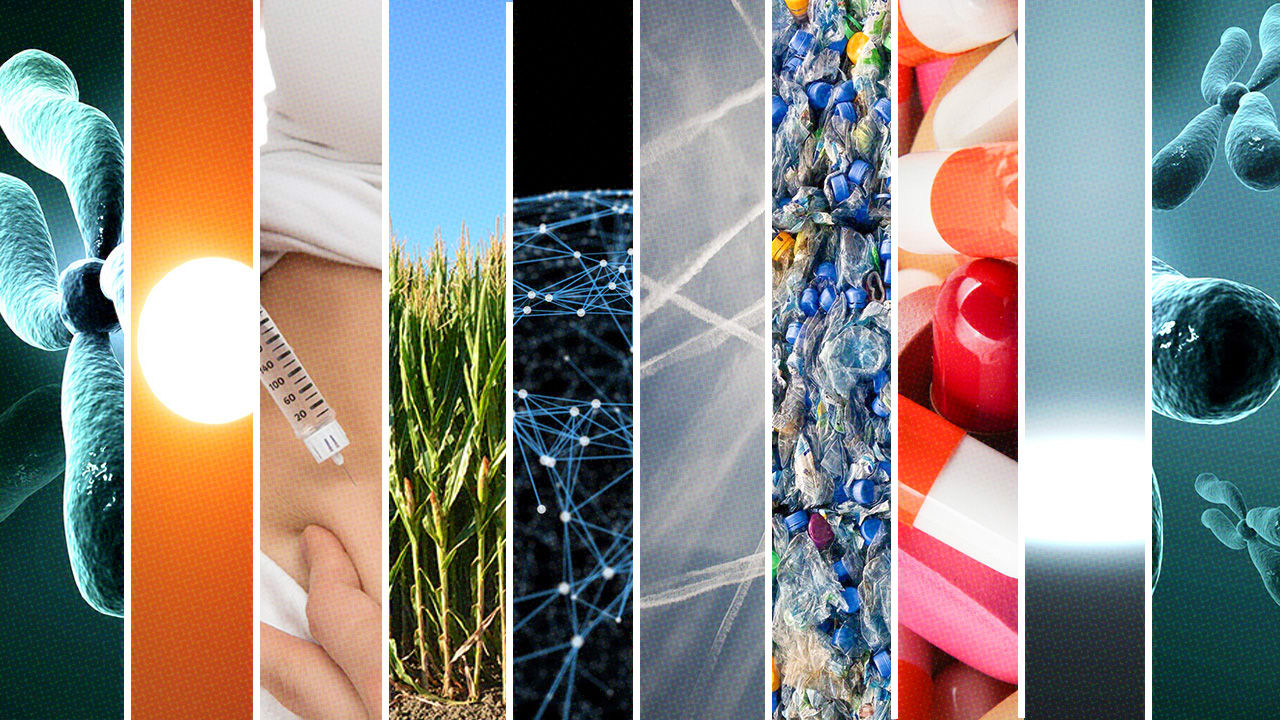Abstract Ideas in 2025: Shaping the Future of Innovation and Thought
Related Articles: Abstract Ideas in 2025: Shaping the Future of Innovation and Thought
- 60th Birthday Gift Ideas For Men: A Comprehensive Guide For 2025
- 6-Year-Old Boy Birthday Party Ideas For 2025: Unforgettable Celebrations For Your Little Hero
- 60th Birthday Party Ideas For Women In 2025: A Diamond Jubilee Celebration
- 80th Birthday Gift Ideas For 2025: A Timeless Tribute To Cherished Memories
- 2 Truths And A Lie Ideas For Kids 2025: Foster Critical Thinking And Laughter
Introduction
With enthusiasm, let’s navigate through the intriguing topic related to Abstract Ideas in 2025: Shaping the Future of Innovation and Thought. Let’s weave interesting information and offer fresh perspectives to the readers.
Table of Content
Video about Abstract Ideas in 2025: Shaping the Future of Innovation and Thought
Abstract Ideas in 2025: Shaping the Future of Innovation and Thought

Introduction
The year 2025 marks a pivotal point in the evolution of human thought and innovation. As the world grapples with complex challenges and seeks transformative solutions, abstract ideas will play an increasingly significant role in shaping our future. This article explores the nature of abstract ideas, their impact on society, and how they will continue to drive progress and innovation in the coming years.
Defining Abstract Ideas
Abstract ideas are concepts that exist independently of physical objects or sensory experiences. They are often intangible, non-concrete, and can only be grasped through intellectual reasoning or imagination. Examples of abstract ideas include love, justice, freedom, and creativity.
Abstract ideas are essential for human cognition and communication. They allow us to think about complex concepts, form opinions, and engage in meaningful discussions. They also provide the foundation for scientific inquiry, artistic expression, and social progress.
The Role of Abstract Ideas in Innovation
Abstract ideas are the seeds of innovation. They challenge existing paradigms, inspire new perspectives, and drive the creation of transformative technologies and solutions. For instance, the abstract concept of "artificial intelligence" led to the development of powerful computational tools that are revolutionizing various industries. Similarly, the abstract idea of "sustainability" has spurred the development of eco-friendly technologies and practices that address global environmental challenges.
In 2025 and beyond, abstract ideas will continue to fuel innovation in areas such as:
- Artificial intelligence: Advances in machine learning and natural language processing will enable AI systems to understand and manipulate abstract concepts, leading to new breakthroughs in fields like healthcare, transportation, and manufacturing.
- Quantum computing: The ability to harness quantum effects will unlock new possibilities for solving complex problems in areas such as materials science, drug discovery, and financial modeling.
- Biotechnology: Genetic engineering and synthetic biology will allow us to manipulate and create living systems, opening up new avenues for medical treatments, sustainable agriculture, and environmental remediation.
The Impact of Abstract Ideas on Society
Abstract ideas not only drive innovation but also have a profound impact on society. They shape our values, beliefs, and social institutions. For example, the abstract idea of "democracy" has led to the establishment of representative governments worldwide, while the abstract idea of "human rights" has inspired movements for social justice and equality.
In 2025, abstract ideas will continue to influence societal discourse and decision-making:
- Ethics of technology: The rapid advancement of AI and other technologies raises ethical questions about privacy, bias, and the impact on employment. Abstract ideas such as fairness, transparency, and accountability will guide the development and use of these technologies.
- Social cohesion: Globalization and social media have fostered unprecedented interconnectedness, but they have also exposed societal divisions. Abstract ideas such as empathy, tolerance, and community will be crucial for bridging gaps and building inclusive societies.
- Environmental sustainability: The urgency of climate change and other environmental challenges requires a fundamental shift in our thinking. Abstract ideas such as resilience, circularity, and intergenerational equity will guide the transition to a sustainable future.
Educating for Abstract Ideas
To thrive in the era of abstract ideas, individuals need to develop strong critical thinking, analytical, and problem-solving skills. Education systems must prioritize the teaching of abstract concepts and encourage students to engage in intellectual inquiry and debate.
In 2025, educational institutions will need to:
- Foster curiosity: Create learning environments that encourage students to ask questions, explore new ideas, and challenge assumptions.
- Develop critical thinking: Teach students how to evaluate information, identify biases, and construct logical arguments.
- Promote collaboration: Encourage students to work together to solve complex problems and develop innovative solutions.
- Embrace interdisciplinary learning: Break down traditional subject boundaries and encourage students to connect abstract ideas across disciplines.
Conclusion
Abstract ideas are the driving force behind innovation, progress, and societal transformation. As we approach 2025 and beyond, their importance will only grow. By fostering a culture that values abstract thinking, education, and open dialogue, we can harness the power of these ideas to create a future that is both innovative and equitable.
![[IMGSRCTITLE2]](https://innovativezoneindia.com/wp-content/uploads/2022/09/Top-10-Future-Business-Ideas-that-will-thrive-in-2025.jpg)
![[IMGSRCTITLE3]](https://assets.weforum.org/editor/nEx-0cHIhc0hawxVtc1z3xicZ75uf7qcecMJ3c6yu8E.jpg)
![[IMGSRCTITLE4]](https://wiipa.org/wp-content/uploads/2023/03/photo_2023-03-25_23-12-23.jpg)
![[IMGTITLE5]](https://wonderfulengineering.com/wp-content/uploads/2017/07/maxresdefault-5.jpg)
![[IMGTITLE6]](https://helpfulprofessor.com/wp-content/uploads/2023/01/abstract-thinking-examples-and-definition.jpg)
![[IMGTITLE7]](https://grammarhow.com/wp-content/uploads/2021/09/11_Examples-Of-What-Abstract-Ideas-Are-1024-x-768-px.jpg)
![[IMGTITLE8]](https://thumbs.dreamstime.com/b/future-technology-innovation-background-creative-idea-concept-abstract-bulb-illustration-236457413.jpg)
Closure
Thus, we hope this article has provided valuable insights into Abstract Ideas in 2025: Shaping the Future of Innovation and Thought. We hope you find this article informative and beneficial. See you in our next article!
![[IMGTITLE9]](https://media.licdn.com/dms/image/D5612AQEDvyX_yjANVQ/article-cover_image-shrink_720_1280/0/1657036992912?e=2147483647u0026v=betau0026t=RW7lWlr4MIx7GJy1CJF-AWzbInwbcwVLpXCyuEEGmyo)